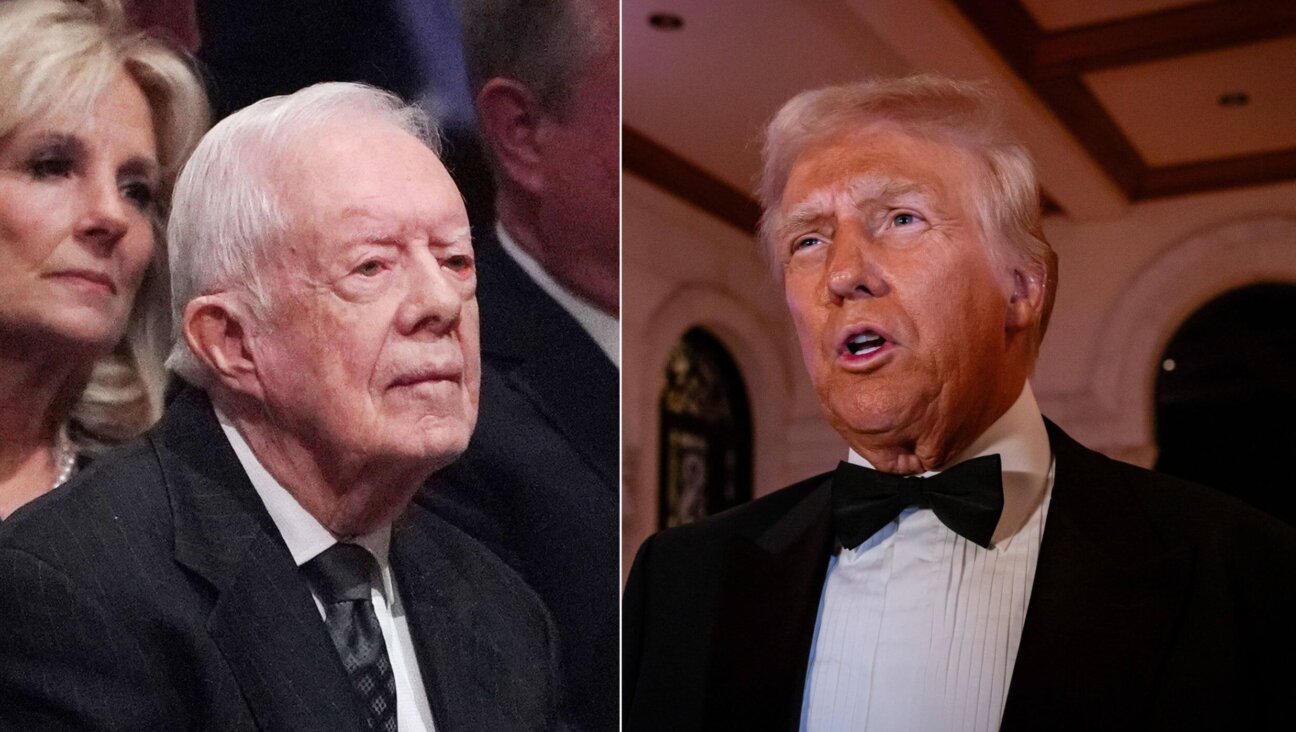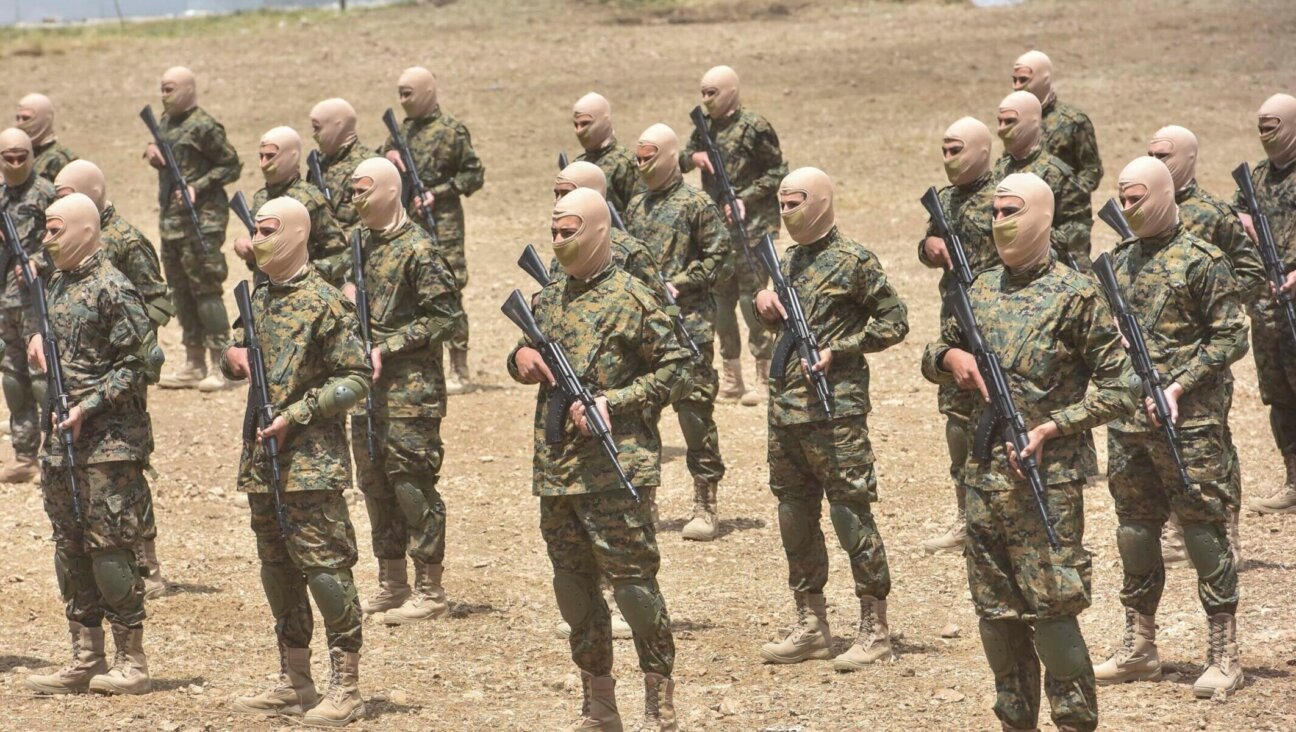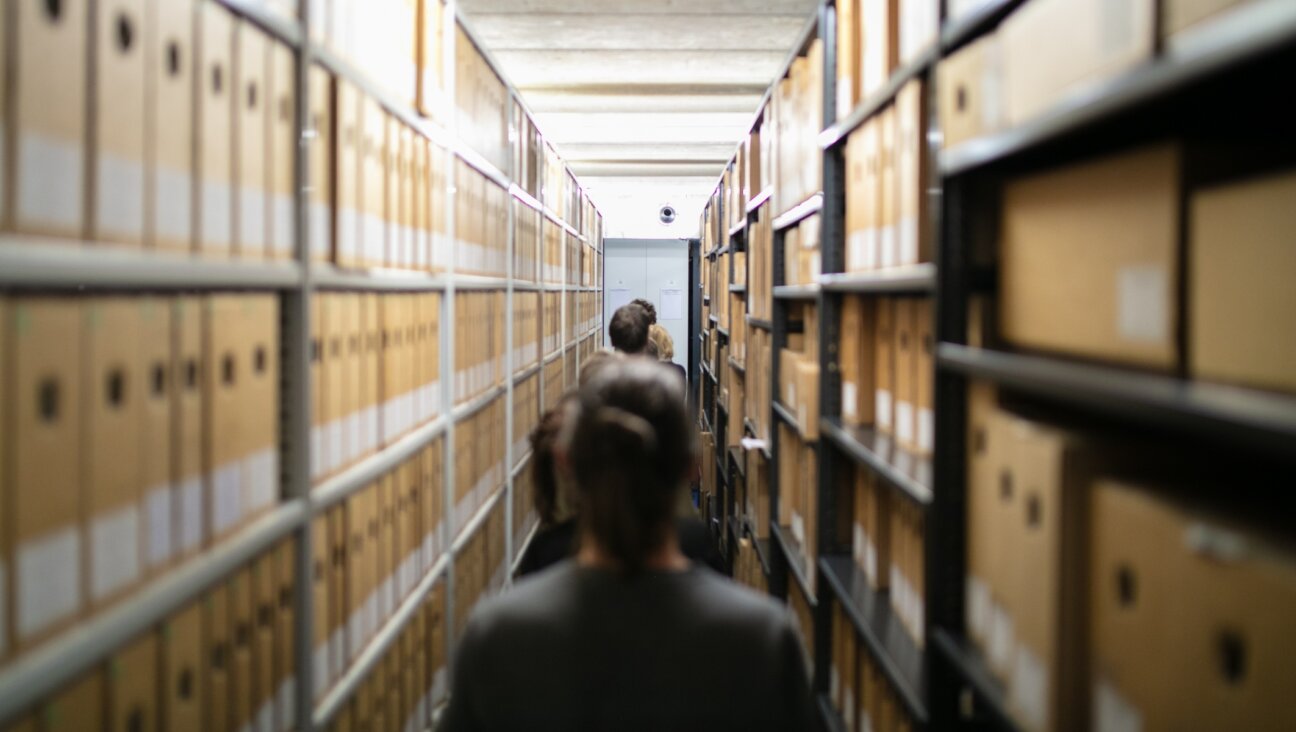Spotlight Falls on Minneapolis Suburb That Bred Franken, Coen Brothers, Friedman

BACK HOME: The old Lincoln deli was around when Thomas Friedman, the Coen brothers, and Al Franken were growing up in St. Louis Park, Minn.
Though certain neighborhoods, such as Manhattan’s Lower East Side, have become legendary as incubators for Jewish genius, that appellation has rarely been applied to St. Louis Park, Minn.

BACK HOME: The old Lincoln deli was around when Thomas Friedman, the Coen brothers, and Al Franken were growing up in St. Louis Park, Minn.
But now the prominent progeny of this leafy suburb are receiving some serious attention. On September 9, comedian turned politician Al Franken used support from the northern suburb where he grew up to win the Democratic primary for U.S. Senate (see related article). The previous day, Franken’s fellow St. Louis Parker, Thomas Friedman, rolled out his new book, “Hot, Flat ,and Crowded: Why We Need a Green Revolution — and How It Can Renew America.” That same day, the most famous Jewish brothers to emerge from the town, Oscar winners Ethan and Joel Coen, arrived in the Minnesota suburbs to begin shooting a film about the milieu in which all the men grew up.
In the years after World War II, St. Louis Park became a center of Twin Cities Jewish life, as families arrived from the inner city, drawn by cheap housing and by the lack of restrictions that kept Jews out of other nearby suburbs. By the time the Coens, Friedman and Franken were growing up, the area was roughly a quarter Jewish and home to many of Minneapolis’s major Jewish institutions.
“It was at the time that all the political ferment had reached the Midwest and people were just full of ideas and protests, opinions, speaking their minds, finding ways to be free and anti-establishment,” recalled Miriam Kagol, a retired teacher who once taught journalism to Friedman at St. Louis Park Senior High School. “It was a free and creatively dynamic place.”
Franken, who was born in New York City, has drawn on his childhood in St. Louis Park in his campaign to emphasize his local roots. One of his first campaign events, in March 2007, was held in the gymnasium of St. Louis Park Junior High School, and Franken’s first television advertisements featured his fourth grade teacher at Cedar Manor Elementary School.
“It was the Jewish suburb of Minneapolis,” Franken told the Forward.
Friedman, too, has spoken affectionately about his St. Louis Park roots. In 2001, he wrote a heartfelt remembrance in The New York Times of Hattie Steinberg, a journalism teacher at St. Louis Park Senior High School.
The Coen brothers’ film “A Serious Man,” which is expected to open next year, is set in 1967 in a heavily Jewish suburb much like St. Louis Park, and tells the tale of Larry Gopnik, a physics professor whose life is in shambles. In search of solace, he turns to three of his local rabbis. This is not the first time the Coens have delved into Jewish territory in their movies: “The Big Lebowski” featured Walter Sobchak, a Vietnam veteran, Jewish convert and avid bowler who refused to “roll on Shabbos.”
Outwardly, St. Louis Park remains the same enclave of leafy residential streets that the Coens are depicting, with strip malls lining Minnetonka Boulevard. But the community has changed in significant ways. Though the town still has a sizable Jewish community, many Jews have dispersed to other parts of the Twin Cities area, and the population that has remained has grown older.
The Coens have been re-creating the setting of their childhood with characteristic obsessiveness. Employees connected to the film have been in touch with St. Louis Park’s Jewish Historical Society of the Upper Midwest for more than a year, collecting period photos of teenagers and living rooms. The casting directors invited hundreds of local Jewish children to an open casting call, from which they drew several of the lead children’s roles. Many more locals, including a cantor and a rabbi, have been slotted for extras and minor roles.
“I think every Jew in our community has some part in this movie,” said Katherine Tane, executive director of the Jewish Historical Society of the Upper Midwest.
With reporting by Brett Lieberman
A message from our Publisher & CEO Rachel Fishman Feddersen

I hope you appreciated this article. Before you go, I’d like to ask you to please support the Forward’s award-winning, nonprofit journalism so that we can be prepared for whatever news 2025 brings.
At a time when other newsrooms are closing or cutting back, the Forward has removed its paywall and invested additional resources to report on the ground from Israel and around the U.S. on the impact of the war, rising antisemitism and polarized discourse.
Readers like you make it all possible. Support our work by becoming a Forward Member and connect with our journalism and your community.
— Rachel Fishman Feddersen, Publisher and CEO























